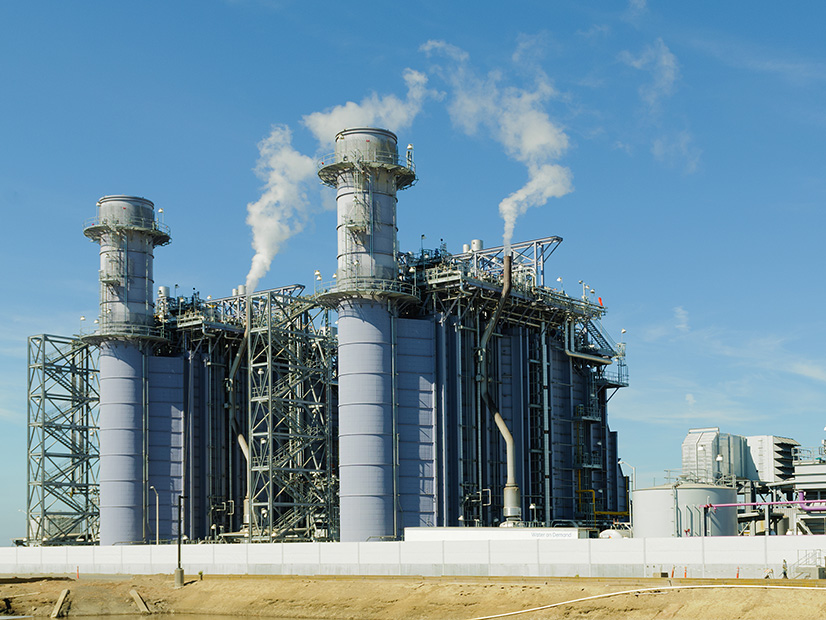
EPA is holding off on new emissions restrictions for existing natural gas-fired power plants.
The agency in May 2023 proposed stronger greenhouse gas pollution standards for new and existing fossil-burning generation facilities and received more than 1.3 million comments in response. (See EPA Proposes New Emissions Standards for Power Plants.)
The process had been nearing its conclusion but will now continue.
EPA will soon send a finalized version of its proposal to the Office of Management and Budget, but the rules will not cover existing gas facilities — EPA said Feb. 29 it wants to strengthen provisions that pertain to existing gas.
EPA Administrator Michael Regan said in a news release:
“As EPA works towards final standards to cut climate pollution from existing coal and new gas-fired power plants later this spring, the agency is taking a new, comprehensive approach to cover the entire fleet of natural gas-fired turbines, as well as cover more pollutants including climate, toxic and criteria air pollution.”
Gas-burning plants are cleaner than coal-burners, but they do produce emissions and are more numerous. The Energy Information Administration tallied 2,073 gas-burning plants rated at least 1 MW nationwide in 2022 and only 242 coal-burning plants.
Some Republicans and industry groups criticized the original emissions proposal as strict and potentially damaging to grid reliability, which EPA denied. (See Regan: New EPA Standards Designed to not Jeopardize Grid Reliability.)
In contrast, some environmental advocates criticized the original emissions proposal as too lenient, saying it would have applied to only a small percentage of existing gas-fired plants.
This sentiment was captured in a celebratory quote EPA provided Feb. 29 from Washington Gov. Jay Inslee (D):
“This is excellent news from Administrator Regan, and I commend him for his continued leadership. We cannot mitigate emissions and pollution from power plants by ignoring our country’s largest source of electricity generation: existing gas plants. Washington state is eager to support EPA in undertaking this rulemaking as quickly as possible.”
Some environmental advocates offered messages that were more wait-and-see than celebratory.
NRDC President Manish Bapna said in a prepared statement:
“We can’t tackle climate change and clean up air pollution without slashing emissions from the existing gas-fired power plants already pumping huge amounts of carbon and other dangerous pollutants into the air. EPA needs to finish the job without delay.”
Peggy Shepard, executive director of WE ACT for Environmental Justice, said:
“We are wholly appreciative of EPA’s leadership in demonstrating the need for further review, and at the same time request a clear and transparent process as we look forward to collaborating for its improved realization. Only when this rule is finalized can we truly know we are on a path to resilience and justice.”
Regan touched on these concerns in EPA’s news release:
“This stronger, more durable approach will achieve greater emissions reductions than the current proposal. EPA proposals on criteria pollutants and air toxics also will help address local air quality impacts to better protect vulnerable frontline communities.
“This comprehensive approach to reducing climate and air pollution will also consider flexibilities to support grid operators and will recognize that ongoing technological innovation offers a wide range of decarbonization options. EPA will immediately begin a robust stakeholder engagement process, working with workers, communities with environmental justice concerns and all interested parties to help create a more durable, flexible and affordable proposal that protects public health and the environment.”



